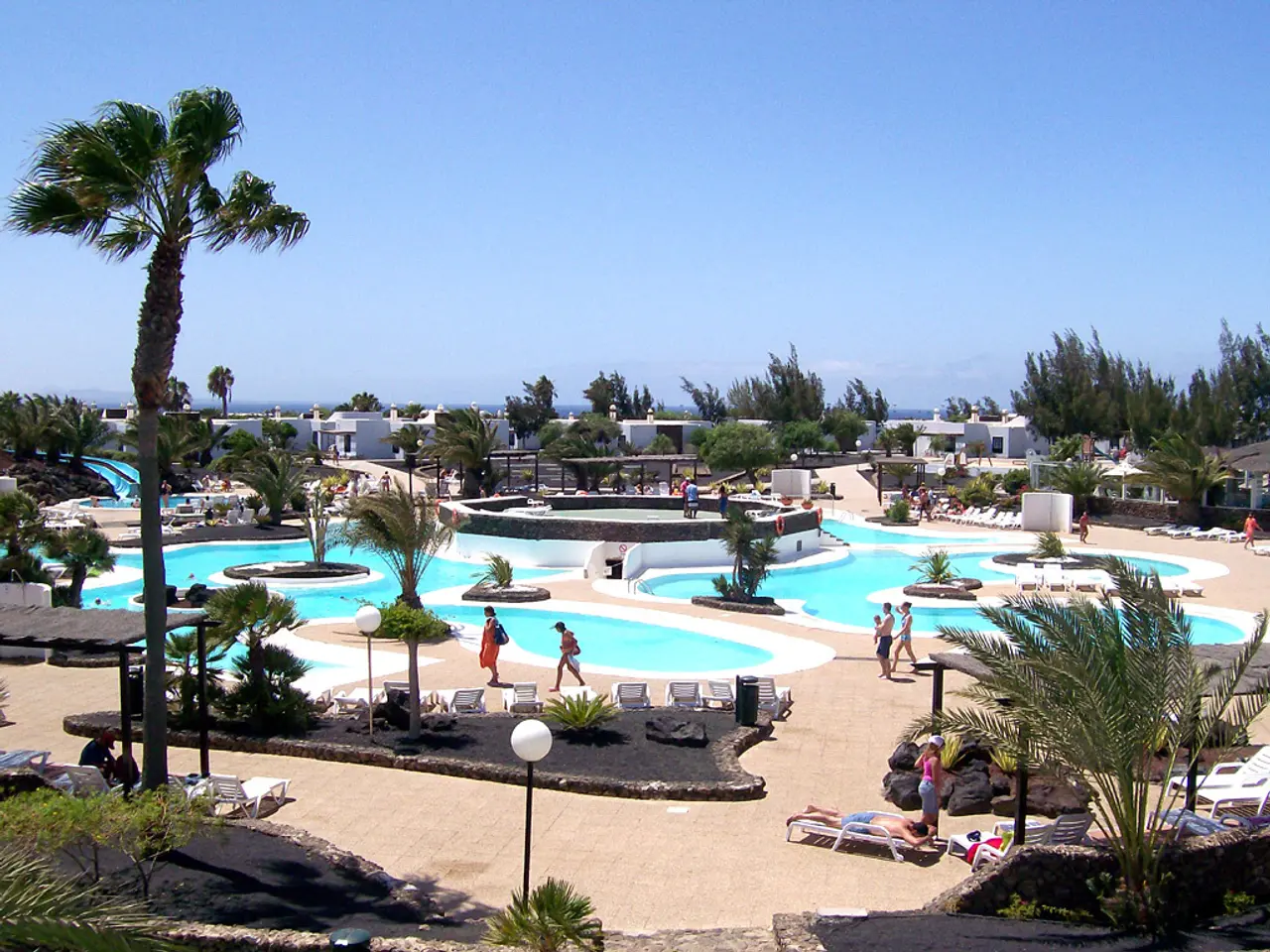Torrid temperatures have scorched Korea during the month of June, setting new records, and promising a sweltering hot summer season ahead.
In the sweltering heat of Seoul, South Korea, citizens are taking refuge at Gwanghwamun Square, central Seoul, as part of a comprehensive heatwave management strategy. The city's efforts to combat the prolonged and intense heatwave season are a testament to a multi-layered approach that combines social support, public health education, and targeted intervention.
On July 1, the cooling strategy at Gwanghwamun Square was initiated, providing much-needed relief for the city's residents. The strategy includes the use of cooling fog, which has been set up to help combat the oppressive heat. Citizens are seen cooling themselves down under the parasols at the square, finding solace from the summer heat.
The heatwave advisory, issued across the country on July 1, has prompted the government to take action. District-level comprehensive measures are being implemented to protect vulnerable populations. For instance, Songpa-gu, a district with a large elderly population, is implementing the "2025 Heatwave Comprehensive Measures" through September 30. This includes deploying disaster helpers like visiting nurses to check on the safety of elderly people living alone, as well as safety education instructors who visit senior centers to educate about heatwave behavior and heat-related illnesses.
Financial and material support is also being provided for vulnerable households. Gwangjin-gu's "Care SOS Heat Wave Measures" project checks on households vulnerable to heat and aims to improve their living conditions. Support can include financial aid up to approximately 1.05 million won per person, covering materials and transportation, for households under 130% of the median income who have difficulty relocating or living independently.
The Korea Disease Control and Prevention Agency (KDCA) strongly advises avoiding outdoor activities during the hottest parts of the day (noon to 5 p.m.) to prevent heat exhaustion and heatstroke. Medical professionals emphasise early recognition of symptoms and taking precautions such as staying hydrated and cooling down.
Seoul's heat management strategies are a response to the worsening climate conditions. The city experienced its first tropical night of the year on June 29, where temperatures stayed above 25°C overnight, signalling intensified heat stress on residents and underscoring the need for continuous monitoring and preparedness.
Meanwhile, tourists are lining up at a 'Squid Game' experience zone in Gwanghwamun, central Seoul, on July 4. The location of the zone, under parasols, offers a respite from the summer heat for those visiting the area. Gyeongbok Palace, another popular tourist destination, is not directly related to the 'Squid Game' experience zone, but it too serves as a refuge for locals and tourists alike seeking to escape the heat.
These efforts reflect a proactive approach to mitigate the increasing risks posed by extreme summer heat in Seoul. By combining social support, public health education, and targeted intervention, the city is working to ensure the safety and well-being of its residents amidst the challenging climate conditions.
- The use of cooling fog at Gwanghwamun Square is a part of the city's business to combat the prolonged heatwave season, serving the health-and-wellness sector while addressing the effects of climate change on the environment.
- The "2025 Heatwave Comprehensive Measures" in Songpa-gu, a district with a large elderly population, demonstrates the industry's role in addressing climate change through environmental science, focusing on the health and safety of vulnerable populations.
- The Korea Disease Control and Prevention Agency's (KDCA) advice to avoid outdoor activities during the hottest parts of the day is closely linked with the fitness-and-exercise industry, emphasizing the importance of staying healthy and hydrated during climate change-induced heatwaves.
- Financial and material support for vulnerable households, as part of Gwangjin-gu's "Care SOS Heat Wave Measures" project, reflects the role of the arts and business in raising awareness about the environmental issues and the need for social support during climate change.
- The 'Squid Game' experience zone in Gwanghwamun, although primarily a tourist attraction, provides a temporary refuge from the summer heat, illustrating the potential of the arts industry to contribute to health and wellness during extreme climate conditions.




